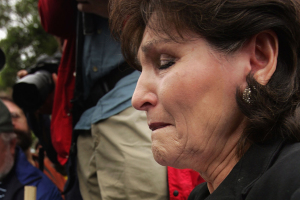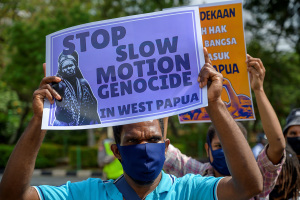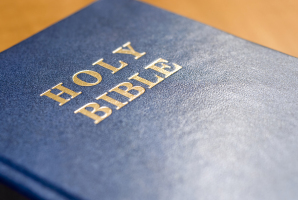Second Episcopal Diocese Breaks from National Church
MONROEVILLE, Pa. - Clergy and lay members of the theologically conservative Pittsburgh diocese voted overwhelmingly Saturday to break from the liberal Episcopal Church, with which it differs on issues ranging from homosexuality to biblical teachings on salvation.
Assistant Bishop Henry Scriven said the vote means the Pittsburgh diocese is now more firmly aligned with the majority of the 77 million-member worldwide Anglican Communion, which is more conservative than the communion's 2.2 million-member U.S. church.
"I am delighted," Scriven said, "that what we have done today is bringing the Diocese of Pittsburgh back into the mainstream of worldwide Anglicanism."
The Most Rev. Katharine Jefferts Schori, presiding bishop of the U.S. church, criticized the vote in a statement, saying, "There is room in this Church for all who desire to be members of it."
She also said schism is not an "honored tradition within Anglicanism" and is "frequently been seen as a more egregious error than charges of heresy."
The votes were 240 in favor of leaving the church and 102 against. Eight voters either abstained or cast disqualified ballots.
The Diocese of San Joaquin, based in Fresno, Calif., was the first to leave the national church, in 2006. Dioceses based in Quincy, Ill., and Fort Worth, Texas, also are set to vote next month on leaving.
The Pittsburgh diocese was led for 11 years by Bishop Robert Duncan. He was removed from office by the national church's House of Bishops last month.
Many who opposed the split said the national church erred by disciplining Duncan before the vote. The Rev. James Simons — pastor of one of at least 16 Pittsburgh-area churches that plan not to break away — said it "created enormous sympathy" for those voting to split.
Duncan is among the leaders of a national network of theological conservatives who are breaking away from the liberal denomination in a dispute over Scripture. The long-simmering debate, similar to others going on in the mainline Presbyterian, Methodist and Lutheran denominations, erupted in 2003, when Episcopalians consecrated the first openly gay bishop, V. Gene Robinson of New Hampshire.
Clergy and lay members on both sides of the aisle were impassioned before Saturday's vote. Several opposed to splitting from the national church acknowledged disagreeing with its more liberal teachings — including a more "inclusive" salvation that doesn't rely on Christ's crucifixion alone. But many said staying in the church was the only way to remedy those teachings.
The Rev. Philip Wainwright, an Episcopal priest who opposed the split, said the personal salvation of those who remain in the national church is not compromised by its more liberal teachings, which can be changed only by remaining in the church.
"If the gates of hell cannot prevail against this church, then a gay bishop and those who consecrated him cannot, either," Wainwright said.
But those voting to leave argued they're not being extreme, just faithful to biblical teachings.
"The church became as gray as the culture," said Alison McFarland, who voted for the split. "Undefined Christianity became the problem, and now the church is indistinguishable from the world."
Pittsburgh diocesan spokesman, the Rev. Peter Frank, said the breakaway diocese is led by a standing committee that is formally expected to elect Duncan as its bishop in November.
The breakaway diocese will align with the like-minded Anglican Province of the Southern Cone in South America, which already recognizes Duncan as a bishop and has welcomed the San Joaquin diocese into its fold.
Conservatives like Duncan and the Pittsburgh diocese are in the minority of the U.S. church but constitute a majority in the Anglican Communion.
Duncan expects more than two-thirds of the Pittsburgh-area's 74 congregations to be part of the breakaway diocese. Some congregations may end up splitting themselves over the issue, Duncan said.
Simons said a standing committee governs the parishes that remain in the Episcopal Church and will probably select an interim bishop before the end of the year.
Still unsettled is who owns the property of parishes remaining in the church.
Duncan said some parish properties are owned by the diocese and others by the congregations, although the diocese may have invested money in some of those. Duncan has pledged to negotiate fairly with parishes that wish to remain in the national church; he and Simons said they hope to avoid litigation.




























